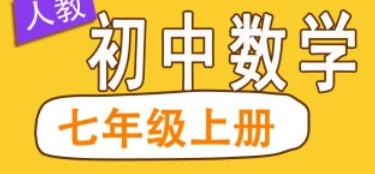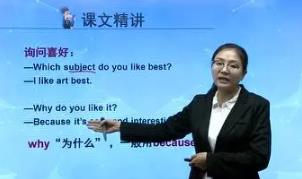新人教版七年级上册英语知识点:be动词的用法
be动词有三种变形,分别是:am, is, are。记忆口诀:
“我”用am, “你”用are, is用于“他、她、它”;单数全都用is,复数全部都用are。
新人教版七年级上册英语知识点:人称及人称代词的不同形式(主格和宾格)
1、三种人称:第一人称(I, we),第二人称(you, you),第三人称(he, she, it, Maria)。
2、人称代词的主格,即人称代词位于句子主语位置时的形态:I, We, You, You, He, She, It, Maria。
3、人称代词的宾格,即人称代词位于句子宾语位置时的形态:me, us, you, you, him, her, it。
4、形容词性物主代词:my, our, your, your, his, her, its, their。
5、名词性物主代词:mine, ours, yours, yours, his, hers, its, theirs。
6、反身代词:myself, ourselves, yourself, yourselves, himself, herself, itself, themselves。
基数词(表示数量多少的词,大致相当于代数里的自然数)
zero, one, two, three, four, five, six, seven, eight, nine, ten, eleven, twelve, thirteen, fourteen, fifteen, sixteen, seventeen, eighteen, nineteen, twenty, twenty-one, twenty-two, twenty-three,twenty-four, twenty-five, twenty-six, twenty-seven, twenty-eight, twenty-nine, thirty, forty, fifty, sixty,seventy, eighty, ninety, one hundred,one hundred and one。
新人教版七年级上册英语知识点:一般疑问句及特殊疑问句
1、一般疑问句:能用Yes或No来回答的问句。一般疑问句句尾读升调。
2、特殊疑问句:不能用Yes或No来回答的问句。特殊疑问句句尾读降调。
新人教版七年级上册英语知识点:可数名词变复数
可数名词变复数时,有规则变化和不规则变化两种。
1、规则变化:
1)一般情况直接在词尾加“-s ”,如:cake-cakes, bag-bags, day-days, face-faces, orange-oranges等;
2)以s, x, sh, ch结尾的词,要在词尾加“-es ”,如:bus-buses, watch-watches, box-boxes等;
3)以辅音字母加y结尾的词,变y为i再加“-es ”,如:baby-babies, country-countries, family-families等;
4)部分以f (e)结尾的词,变f (e)为“ves ”,如:knife-knives, half-halves等;
5)以o结尾的词,加“-s ”或“-es ”,如:zoo-zoos, photo-photos, tomato-tomatoes, potato-potatoes等。记忆口诀:除了“英雄”hero外,凡是能吃的,加“-es ”,不能吃的加“-s ”。
2、不规则变化:
1)改变单数名词中的元音字母:man-men, woman-women, foot-feet, tooth-teeth等;
2)单、复同形:sheep-sheep, Chinese-Chinese, Japanese-Japanese等;
3)其他形式:mouse-mice, child-children等。
新人教版七年级上册英语知识点:简单句的成分及主谓一致原则
最基本构成:主语+谓语+宾语,其中谓语由动词来充当。
主谓一致原则,就是句子的谓语要始终与主语保持数量上的一致性。当主语是第三人称单数(简称“三单”)时,谓语动词也要相应变成单数形式;当主语非“三单”时,谓语动词就用原形。实意动词变“三单”的规则如下:
1)一般动词在词尾加“-s ”,如:like-likes, tell-tells, play-plays等;
2)以字母s, x,ch, sh结尾的动词加“-es ”,如:guess-guesses, teach-teaches, watch-watches等;
3)以o结尾的动词一般加“-es ”,如:do-does, go-goes等;
4)以辅音字母加y结尾的动词,先变y为i,再加“-而是”,如:fly-flies, carry-carries等;
5)have的三单形式是has。
新人教版七年级上册英语知识点:冠词的用法(名词前面必须要有冠词)
冠词分为定冠词(the)和不定冠词(a, an)两种。
1、定冠词the表示“特指”,可译为“这个”、“那个”、“这些”、“那些”。
2、不定冠词a, an用来表明(可数)名词的数量是“一个”。an用于以元音开头(注意不是以元音字母开头)的单词前,a则英语非元音开头的单词前。
3、不定冠词a, an与基数词one的区别是:不定冠词不是刻意强调“数量”,而基数词则强调“数量”。
新人教版七年级上册英语知识点:助动词(do, does )的用法
只有实意动词作谓语时才涉及使用助动词。以like为例:
1)当句子为肯定句时不涉及使用助动词,只涉及“主谓一致”原则。
eg : I like English a lot.
Michael likes Chinese food very much.
2)当句子为否定句时,要根据主语的人称来决定使用相应的助动词:当主语为“三单”时,要使用does;当主语为“非三单”时,用助动词原形do。例如把下列句子变否定句:
Kangkang likes math.----Kangkang doesn't like math.
They like sports.------They don't like sports.
3)当句子变疑问句时,同样要根据句子的主语来决定在句首使用Do或Does.例如下列句子变问句:
Michael likes Chinese Food.----Does Michael like Chinese food? Yes, he does./ No, he doesn't.
Jane and Helen like music.----Do Jand and Helen like music? Yes, they do./ No, they don't.
新人教版七年级上册英语知识点:名词所有格
1、Kangkang's books;Tom and Helen's desk; Ann's and Maria's bikes;
2、用of表示“......的”,但要从of后往of前翻译:a book of mine(我的一本书)
3、have与of的区别:
have一般表示“主动拥有”,往往用于有生命的人或动物;无生命的物体一般不能“主动拥有”,表示所属关系时要用of。例如:
I have a new bike. She has two big eyes.
a door of the house
新人教版七年级上册英语知识点
1、Unit 1 ——Unit 2
1)问候语:
Good morning/ afternoon/ evening.
How are you?---Just OK, thank you. How are you?---Not bad, thanks.
Hi! Hello!
How do you do?
2)道别用语:
Nice/ Glad to meet/ see you.(meet用于初次见面,see用于熟人间)
Nice to meet/ see you, too.
Goodbye. Byebye. Bye. See you (later/ tomorrow/ next time)! So long! Good night!
3)介绍人或者物的句型:This is...
4)Excuse me.与I'm sorry.的区别:
Excuse me.是要引起对方的注意,而I'm sorry.则是向对方道歉。
5)词组be from = come from
in English
5)当问句中问到this/ that时,回答要用it;问到these/ those时,要用they来回答。 例如: What's this in English?----It's an eraser.
What are those?----They are books.
6)对Thanks.的回答:That's OK./ You're welcome./ My pleasur.
7)look the same = have the same looks
give sth. to sb. = give sb. sth.
be like = look like
in the tree/ on the tree (树上结的、长出来的用on,否则用in)
in red(穿着红色的衣服)
in the desk(在空间范围之内)
in English(用英语)
help sb. do sth.
1. good morning/afternoon/evening 早上/下午/晚上好
2. good night 晚安
3. thank you = thanks 谢谢你
4. in English 用英语
5. CD 光盘,激光唱片
6. BBC 英国广播公司
7. NBA (美国)全国篮球协会
8. P 停车场,停车位
9. kg 千克,公斤
10. S 小号的
11. M 中号的
12. L 大号的
13. UFO 不明飞行物
1. my name 我的名字
2. your name 你的名字
3. her name 她的名字.
4. his name 他的名字
5. I’m .. . 我是……
6. first name 名字
7. last name/family name 姓氏
8. Ms. Brown 布朗女士
9. your school ID card 你的学生卡
10. phone/telephone number 电话号码
11. his ID card number 他的身份证号码
12. my friend 我的朋友
13. nice to meet you 很高兴见到你
14. middle school 中学
15. in China 在中国
1. an uncle/aunt 叔叔/阿姨
2. his aunts and uncles 他的阿姨和叔叔们
3. my four friends 我的四个朋友
4. his parents 他的父母
5. my family 我的家
6. your brother/sister 你的兄弟/姐妹
7. these two girls 这两个女孩
8. in Picture 1/in the first picture在 第一张图片里
9. have a good day 过得愉快
10. my family photo 我家的全家福
11. a photo of my family 我家的一张照片
12. the name of my dog 我的狗的名字
13. in my family 在我家里
14. two photos/pictures 两张照片
1. your schoolbag 你的书包
2. his green pen 他的绿色的钢笔
3. Anna’s books 安娜的书
4. her dictionary 她的字典
5. ask the teacher for ... 向老师要……
6. thank you for ... 因........而谢谢你
7. computer games 电脑游戏
8. in Classroom 7E 在7 E 教室里
9. in the school library 在学校图书馆
10. call me 给我打电话
11. call me at 495-3539 拨4 9 5 -3 5 3 9打电话给我
12. e-mail me at... 用……给我发电子邮件
13. my school ID card 我的学生卡
14. a set of keys 一串钥匙
15. some keys 一些钥匙
1. my pencil box 我的铅笔盒
2. on the sofa 在沙发上
3. in your schoolbag 在你的书包里
4. under your bed 在你的床底下
5. in your grandparents’ room 在你祖父母的房间里
6. a tape player 一台录音机
7. a model plane 一个飞机模型
8. English books 英语书
9. in the bookcase 在书柜里
10. under the radio 在收音机下面
11. on the teacher’s desk 在讲台上
12. on your head 在你头上
1. have a volleyball 有一个排球
2. play volleyball/tennis 打排球/网球
3. have a ping-pong/table tennis 有一个乒乓球
4. play ping-pong/table tennis 打乒乓球
5. with our friends 和我们的朋友一起
6. have a football/soccer ball 有一个足球
7. play football/soccer 踢足球
8. at school 在校,在上学
9. play sports 做运动
10. play computer games 玩电脑游戏
11. watch TV 看电视
12. in the same school 在同一所学校
13. after class 下课后
14. go to school 去上学
1. John ’s birthday dinner 约翰的生日宴会
2. vegetable salad 蔬菜沙拉
3. two tomatoes 两个西红柿
4. eat well 吃得营养
5. think about 考虑
6. eat/have breakfast/lunch/dinner 吃早/午/晚饭
7. sports stars 体育明星
8. the volleyball star 排球明星
9. ask sb. about sth. 问某人某事
10. like hamburgers/ice-cream 喜欢汉堡包/冰淇淋
11. like eating eggs 喜欢吃鸡蛋
12. her eating habits 她的饮食习惯
13. be (not) healthy (不)健康
14. one last question 最后一个问题
15. healthy food 健康食物
16. after breakfast/lunch/dinner 早/午/晚饭后
1. these shorts 这些短裤
2. what color 什么颜色
3. a yellow sweater 一件黄色的毛衣
4. twenty white skirts 20条白色的裙子
5. a pair of brown trousers 一条棕色长裤
6. thirte en pairs of sports shoes 13双运动鞋
7. those long black pants 那些长的黑裤子
8. seven dollars 7美元
9. a short red T-shirt 一件短的红T恤
10. a small black hat 一顶小的黑帽子
11. at our great sale 在我们(店)大减价期间
12. at a very good price/at very good prices 以非常优惠的价钱
13. skirts in red 红颜色的裙子
14. for boys/girls 对于男孩/女孩
15. come to M r. Cool’s Clothes Store 来酷先生的服装店
16. $ 2 for three pairs 三双2 美元
17. buy sth. for sb. = buy sb. sth. 买某物给某人
18. sell sth. to sb. / sell sb. sth. 把……卖给某人
1. my father’s birthday 我爸爸的生日
2. happy birthday (to you) (祝你)生日快乐
3. in August 在八月
4. have a birthday party 举办一个生日派对
5. have a book sale 举行一次书籍拍卖
6. have an art festival 举办一次艺术节
7. have an English party 举办一个英语派对
8. have a basketball game 举办一场篮球赛
9. School Day 学校开放日
10. Teachers’ Day 教师节
11. Mother’s Day 母亲节
12. Women’s Day 妇女节
13. Sports Day 体育节
14. two ball games 两场球赛
15. this term 这学期
16. in the afternoon 在下午
17. on the 12th 在12日那天
18. next month 下个月
19. in the school library 在学校图书馆
20. have a good time 玩得开心
1. my favorite subject(s) 我最喜欢的科目
2. have P. E. /a P. E. lesson 上体育课
3. play games with us 和我们一起玩游戏
4. my science teacher 我的科学老师
5. your favorite day 你最喜欢的一天
6. the next day 第二天
7. David’s favorite subject 戴维最喜欢的科目
8. on FridayC morning/afternoon/evening) 在周五(上午/下午/晚上)
9. at 8 :00 在8 点钟
10. from 12:00 to 1:00 从1 2 :0 0 到(下午)1 :0 0
11. after that/class 自那以后/下课后
12. great fun 非常有趣
13. difficult but interesting 难但有趣
14. be OK with sb. 适合某人
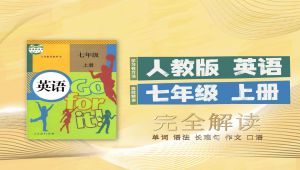
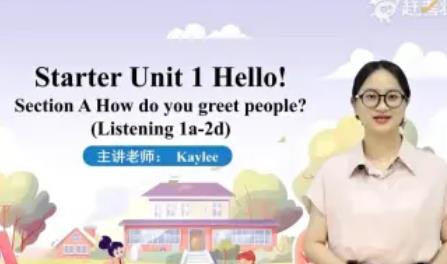






![[人教版]初一数学(七年级上册)教程教学视频播放](/pic/uploadimg/2018-6/201862520211479872.jpg)
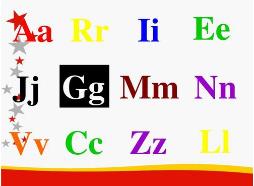

![[人教版]七年级语文(上)册微课](/pic/uploadimg/2019-6/20196308574046720.jpg)
